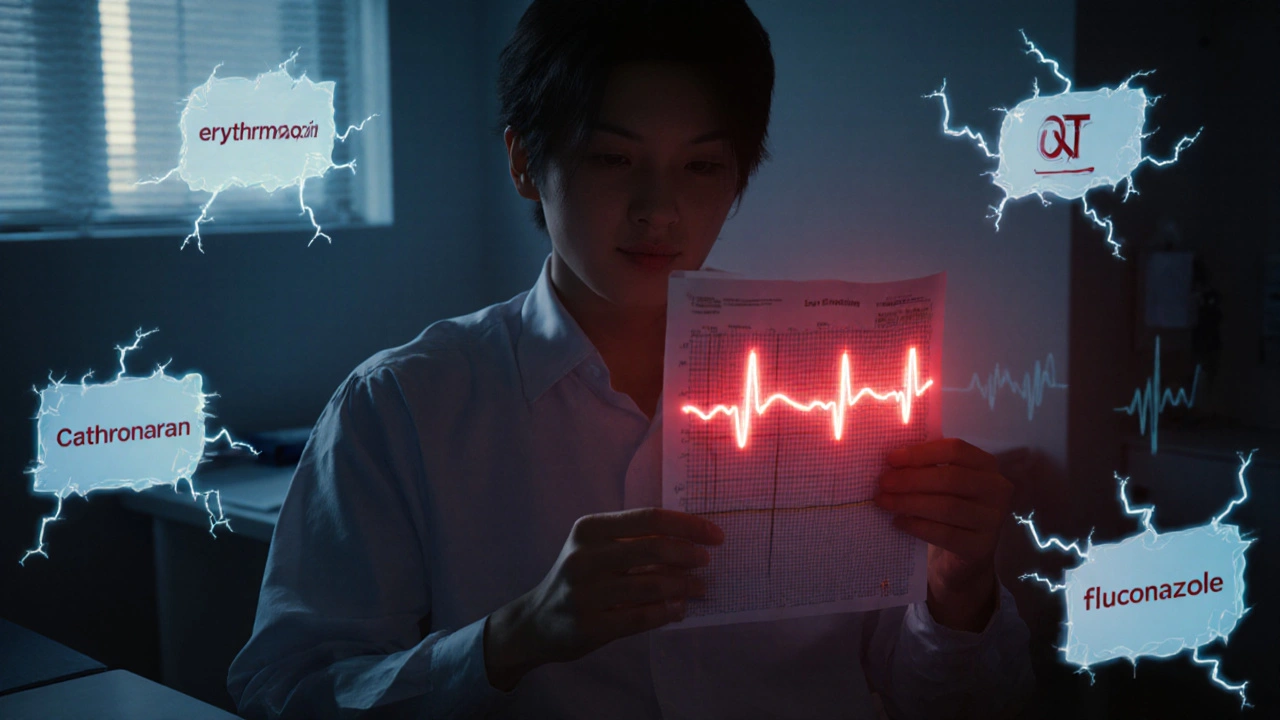QT Prolonging Drugs: Risks, Common Examples, and What to Watch For
When a medication causes QT prolonging drugs, medications that delay the heart’s electrical recovery phase, increasing the risk of life-threatening irregular heartbeats. Also known as prolonged QT interval agents, these drugs interfere with how your heart resets after each beat, and even a small change can be dangerous. This isn’t just a lab result—it’s a real risk that can lead to torsades de pointes, a specific type of dangerous heart rhythm that can cause fainting, seizures, or sudden death. You might not feel anything until it’s too late, which is why knowing which medicines carry this risk matters more than you think.
Many common prescriptions and even some over-the-counter drugs can do this. Antibiotics like clarithromycin, a macrolide antibiotic often used for respiratory infections, antifungals like ketoconazole, certain antidepressants like citalopram, and even some anti-nausea meds like ondansetron have been linked to QT prolongation. It’s not just about one drug either—it’s often the combo. Taking two QT prolonging drugs together, or mixing one with something that slows how your body clears it (like grapefruit juice or certain liver enzyme inhibitors), can push you over the edge. People with existing heart conditions, low potassium or magnesium, or older adults are at higher risk, but anyone can be affected.
What you can’t see on a label is often the biggest threat. A doctor might prescribe a safe drug for your infection, but if you’re already on a blood pressure pill or an antipsychotic that also affects your QT interval, the risk adds up fast. That’s why checking for interactions isn’t optional—it’s critical. If you’ve ever had a heart palpitation, unexplained dizziness, or fainting spell while starting a new med, it’s worth asking your pharmacist or doctor: "Could this be affecting my heart’s rhythm?"
The posts here aren’t just lists—they’re real-world checks. You’ll find guides on how specific drugs like tamsulosin, Unisom, and even some antivirals and antibiotics can stretch your QT interval, what symptoms to watch for, and how to spot dangerous combinations before they cause harm. No fluff. No theory. Just what you need to stay safe when you’re taking meds that touch your heart’s electrical system.
Methadone and QT-Prolonging Drugs: What You Need to Know About Arrhythmia Risk

Methadone can prolong the QT interval and increase the risk of dangerous heart rhythms, especially when combined with other QT-prolonging drugs. Learn who’s at risk, which medications to avoid, and how to stay safe.
